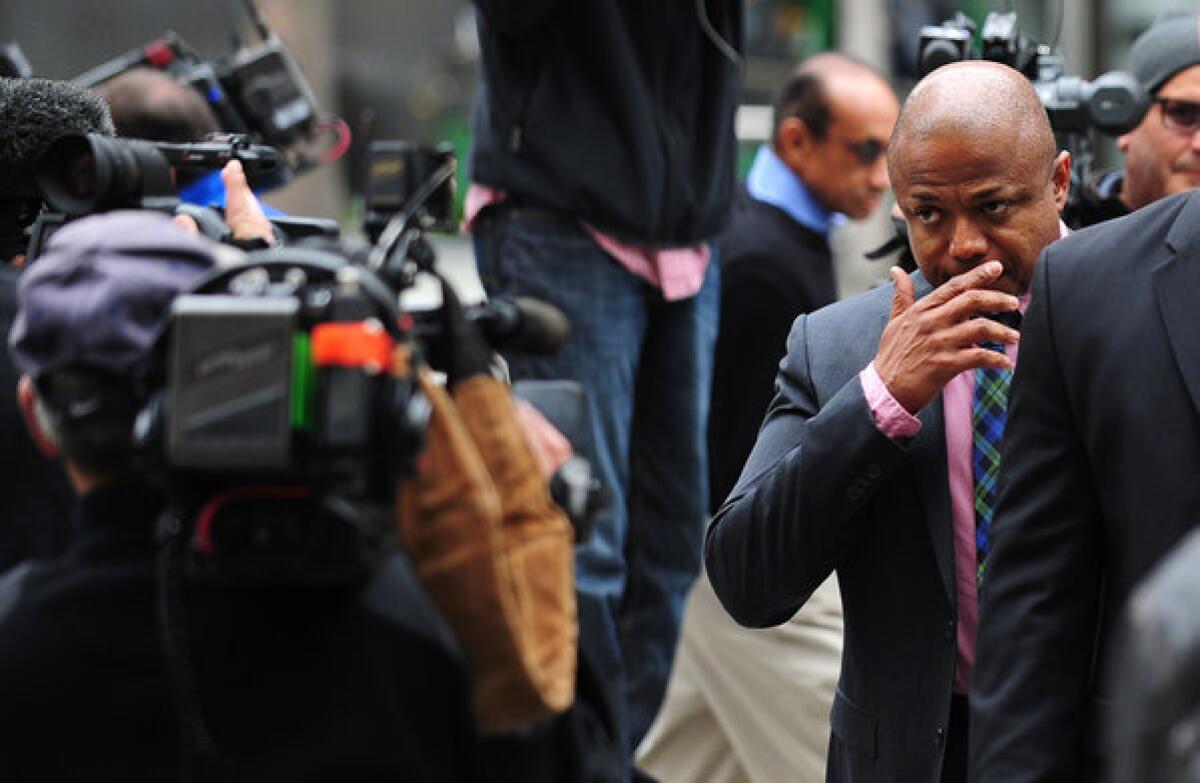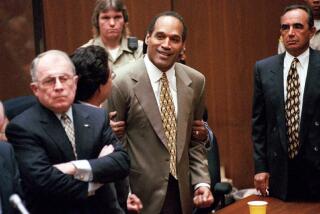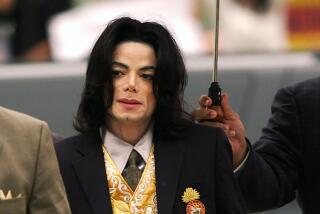Jackson-AEG trial: Detective saw money as motive in singer’s death

When he began investigating Michael Jackson’s death in 2009, Los Angeles Police Det. Orlando Martinez at first concluded that the cause was accidental or natural.
But when the detective discovered the deep financial straits of Jackson’s doctor, Conrad Murray, he shifted his thinking and pondered whether he had discovered a motive for the pop star’s death — “financial gain.”
Martinez was the second witness called Tuesday in a wrongful death lawsuit that Jackson’s mother and three children filed against Anschutz Entertainment Group, accusing the entertainment giant of negligently hiring and supervising Murray.
FULL COVERAGE: AEG wrongful death trial
AEG says it was Jackson who employed Murray, and that the $150,000 a month the company was supposed to pay the doctor was an advance to the singer, much like the money it had loaned him to pay for his Holmby Hills mansion and production costs for the upcoming “This Is It” concert series in London.
On the witness stand, Martinez said that he learned that Murray’s Las Vegas home, on which he owed more than $1.6 million, was worth just a little more than $1 million and was in foreclosure.
The doctor owed hundreds of thousands of dollars in tax liens, child support and other debts, and he had closed his office to work with one patient — Jackson, tying his financial future to him, Martinez said.
PHOTOS: Jackson-AEG wrongful death case
Martinez said Murray’s deep financial distress led him to believe “that he may for this easy money, the $150,000, he may break the rules, bend the rules to do whatever he needed to get paid. It might solve his money problems.”
The detective said that when he interviewed Murray with two attorneys present, the doctor made up a story to protect himself.
“He was not being honest and forthright,” Martinez testified.
Martinez’s testimony was part of the Jackson family’s lawyers’ strategy to show that Murray was more concerned with getting himself out of his financial hole than caring for his patient, and that AEG should have checked him out.
Murray was convicted of involuntary manslaughter in 2011 for giving Jackson a fatal dose of the anesthetic propofol to help him sleep. He is completing a jail sentence.
ALSO:
USC journalism school loses new leader after just two days
May Day rallies to bring crowds, street closures to downtown L.A.
Wild South L.A. pursuit ends on slippery note; suspect in custody
Twitter: @GottliebJeff
More to Read
Start your day right
Sign up for Essential California for news, features and recommendations from the L.A. Times and beyond in your inbox six days a week.
You may occasionally receive promotional content from the Los Angeles Times.







